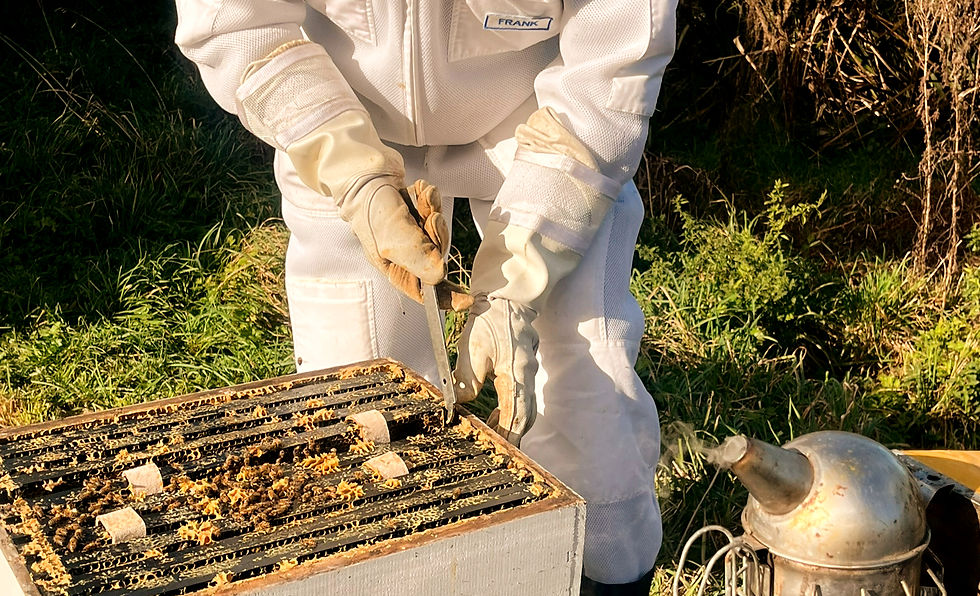Nature’s Allies in the Fight Against Varroa Destructor
- Frank Jeanplong
- Dec 23, 2024
- 2 min read
Varroa destructor mites are among the most pressing threats to honeybee health, with devastating consequences for colonies worldwide. This blog delves into groundbreaking research by Francisco Posada-Flórez and his team, exploring natural predators and pathogens of these mites found in honeybee hives in Eastern North America. This study holds significant insights for New Zealand beekeepers seeking sustainable and environmentally friendly methods to manage Varroa populations.

Key Takeaways
The Power of Nature's Arsenal: The study identified an array of natural enemies to Varroa mites, including entomopathogenic fungi like Beauveria bassiana and Metarhizium species, bacteria such as Bacillus thuringiensis, and predatory arthropods like ants and pseudoscorpions. These organisms showed significant potential for biological control, with some achieving up to 100% mite mortality in laboratory tests.
Sustainable Solutions: With resistance to chemical treatments growing and their potential harm to hive products like honey, this research emphasizes the need for biological alternatives. Leveraging natural enemies could offer a sustainable and residue-free approach to managing Varroa mites.
Practical Implications for Beekeepers: The research highlights the importance of maintaining biodiversity around apiaries. Encouraging the presence of beneficial organisms could help reduce mite populations naturally. For instance, pseudoscorpions, proven predators of Varroa, are commercially available and have shown no negative effects on honeybees.
Challenges Ahead: While promising, the practical application of these biocontrol agents requires further research. Factors like hive environment conditions and compatibility with honeybee behavior need to be addressed for effective implementation.
Why It Matters for New Zealand Beekeepers
With Manuka honey’s global reputation and high value, ensuring colony health is paramount. This study provides a fresh perspective on Varroa management that aligns with sustainable beekeeping practices. By exploring biological control options, New Zealand beekeepers can enhance hive health, reduce reliance on chemicals, and protect the integrity of their premium honey products. Dive into the full study to learn how these findings could revolutionize Varroa management strategies and pave the way for a healthier future for honeybees.



Comments